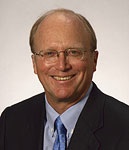by Mark Curriden, Senior Legal Affairs Writer
HOUSTON (January 10) – As the fourth largest city in the U.S., Houston is widely recognized as the energy capital of the world. Nearly every major oil and gas company is headquartered or has a major office here. It is also the home of some of the biggest financial frauds of the past decade, including Enron and Stanford Investments.
Despite those facts, Houston is also the largest city in the country in which the U.S. Securities and Exchange Commission does not have an office.
An increasing number of prominent securities lawyers in Texas argue that the time has come for the SEC to reopen a Houston branch office that the federal agency closed two decades ago. The SEC’s regional office in Fort Worth polices Arkansas, Kansas, Oklahoma and Texas.
Many lawyers who regularly handle SEC matters for Texas-based companies believe that financial frauds such as Stanford would have been caught much sooner if the federal agency had examiners and enforcement attorneys in the home of petroleum.
SEC officials in Washington, DC are reportedly taking a second look at Houston as part of an internal review into how the agency deploys its resources and staff.

“Does the SEC need to have an office in Houston? Unequivocally yes,” says Charlie Parker, a securities litigation partner at Houston’s Yetter Coleman. “Houston has the second most publicly traded companies in the U.S. It seems inevitable that the SEC have an office here that is fully staffed.
“The classical signs of fraud were there for Stanford, but you need to have police where the crime is going on,” says Parker.
Steve Korotash, a securities litigation partner at K&L Gates in Dallas and former head of enforcement for the SEC’s Fort Worth office, says it is a “no-brainer” that the agency needs a presence in Houston.
“The SEC likes to think of itself as a big law enforcement agency, but it doesn’t act like one,” says Korotash. “The SEC needs to put boots on the ground. They need people who get to know the community, attend meetings, hear what’s going on, and develop relationships.”
Korotash says the Houston office doesn’t need to be large – just two or three examiners and the same number of enforcement lawyers.
The Texas Lawbook interviewed 14 lawyers who regularly handle SEC-related matters for Texas businesses and individuals. Eleven of the 14 believe that it is a mistake for the SEC to not have a branch office in Houston.
Kenneth Held, a securities litigator at Schiffer Odom Hicks and Johnson in Houston, is part of the majority.
“I think there is a good chance that early complaints about Stanford would have been taken more seriously if those at the SEC had been living and working here,” says Held. “I’m not saying the SEC can’t cover Houston from Fort Worth, but I think it could do the job better if it were here.”
The SEC had an office in Houston until 1990, when the agency closed it following a sexual harassment scandal.

Edwin Tomko, who now regularly represents businesses and individuals against the SEC, led the agency’s Houston operation from 1986 to 1989.
“It was a mistake to close Houston,” says Tomko, who is a partner at Curran Tomko Tarski in Dallas. “We garnered a lot of positive publicity in Houston just because we were there. We developed a great report with the Harris County District Attorney, the local federal prosecutors and the FBI agents simply because we were there.
“We even got a lot of walk-ins and tips that you do not get with a 1-800 number,” he says.
SEC officials in Washington are currently conducting an agency-wide review of the regional office framework, which is mandated by the Dodd Frank Act.
“I can’t speculate about what that review may conclude,” says David Woodcock, who is the new director of the SEC’s Fort Worth Regional Office. “Certainly any new office would require additional resources, which in turn would result in increased ability to carry out our mission of protecting investors, maintaining fair and efficient markets, and facilitating capital formation.”
“While Houston is the largest city in the country without a local SEC presence, that doesn’t mean we don’t focus on cases there,” says Woodcock. “Just recently, we’ve brought several successful enforcement actions against companies in Houston, including, for instance, an offering fraud case against investment adviser and radio-show host Daniel Frishberg, an SBA loan offering fraud and Ponzi scheme case against Evolution Capital Advisors, a Ponzi scheme case involving well-known coaches and athletes, and several significant Foreign Corrupt Practices Act cases.”
Not all lawyers believe the SEC needs to open shop in Houston.
“It would be nice, but I sincerely do not think it is necessary,” says Scott Fletcher, a securities litigator at Jones Day in Houston. “Sometimes, the SEC just misses things, as it did with Stanford and Madoff.
“There’s so much coordination between the FBI, the Commodities Futures Trading Commission and the SEC that it is like the SEC already has boots on the ground,” says Fletcher. “As a defense lawyer, I wish they wouldn’t cooperate so much.”
Paul Bassette, a securities lawyer at Greenberg Traurig in Austin, is also one of the dissenters.
“I don’t think there would be a huge benefit to make up for the additional cost and bureaucracy,” says Bassette. “So much can be done without actually being there. I would be hard pressed to see what the benefits would be.“
Securities lawyers say they understand that the SEC needs to weigh the cost of opening and maintaining an office in Houston against the travel costs of sending agency staffers to Houston for interviews and meetings.
“The problem,” according to Dallas securities litigator Jeff Ansley, “is that the SEC has significantly cut its travel budget, too.”

Mary O’Connor, a securities litigator at Akin Gump in Dallas, says SEC officials should consider one additional likely benefit of re-opening an office in Houston:
“It would attract a lot of great talent that simply will not move to Fort Worth,” she says. “There’s always been a question about whether top lawyers want to move to Fort Worth. But there’s a lot of great young lawyers out there who wouldn’t think twice about working for the SEC in Houston.”
Mark Curriden is senior legal affairs writer for TexasLawbook.net and is Writer in Residence at SMU Dedman School of Law.

Leave a Reply
You must be logged in to post a comment.